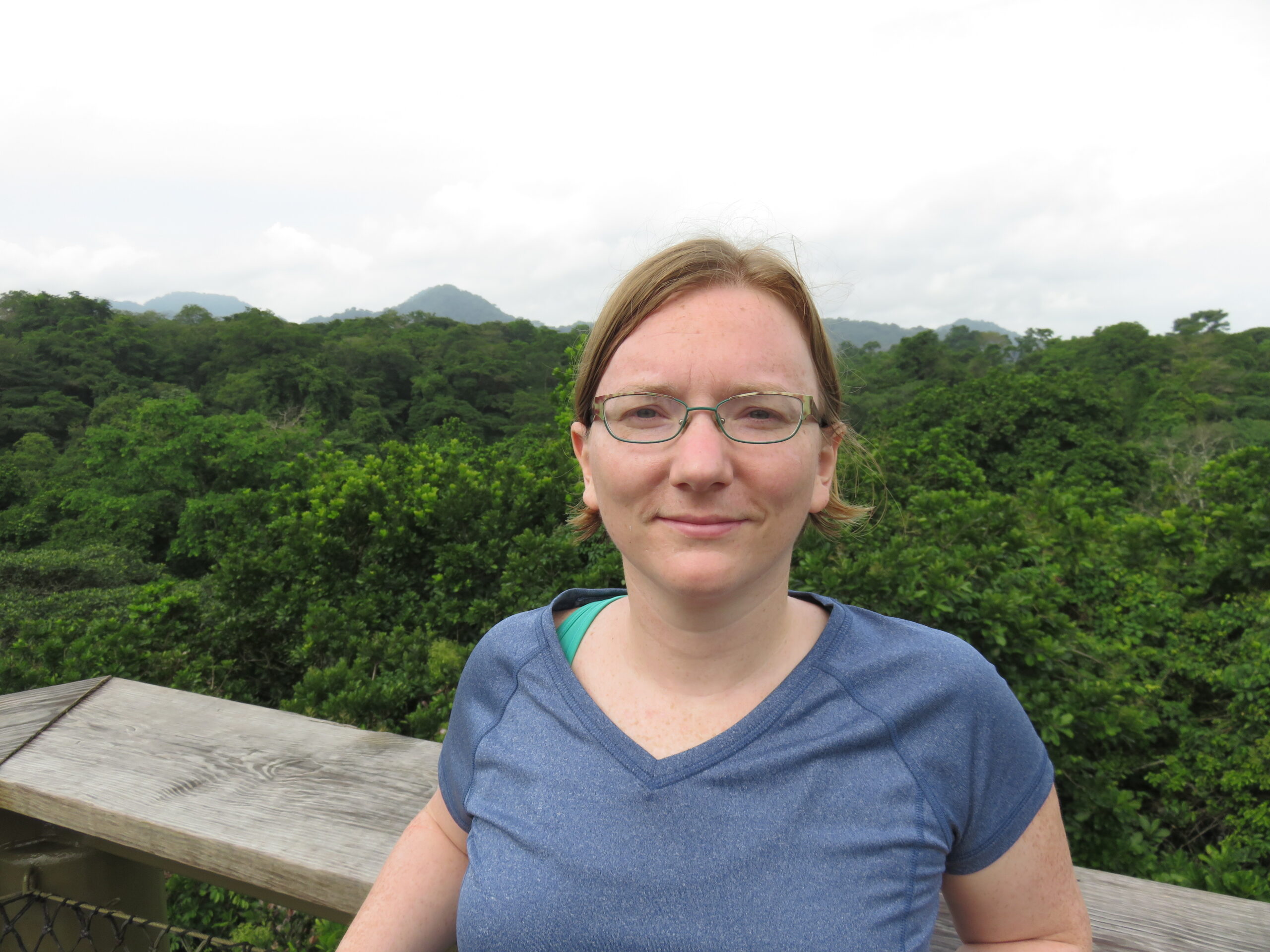
Megan Raby
Email: meganraby@austin.utexas.eduPronouns: she/her
Position: Associate Professor
Institutional Affiliation: University of Texas at Austin
Department: History
Regions of Interest: Caribbean, Central America, LAC in the World
Time Periods: Twentieth Century
Subareas: Science, Environment
Keywords:
PhD, History of Science, Medicine, and Technology, University of Wisconsin-Madison, December 2012.
MA, History, Montana State University-Bozeman, 2007.
Positions Held:
Associate Professor, Department of History, University of Texas at Austin, 2019-present.
Faculty Affiliate, Department of Geography and the Environment, 2019-present.
Faculty Associate, Teresa Lozano Long Institute of Latin American Studies (LLILAS-Benson), 2016-present.
Assistant Professor, Department of History, University of Texas at Austin, 2013-2019.
Smithsonian Postdoctoral Fellow, Smithsonian Institution Archives and National Museum of American History, Washington DC, 2013-2014.
Visiting Assistant Professor, Department of History, Saint Olaf College, Spring 2013.
About Me:
Megan Raby is Associate Professor in the Department of History at the University of Texas at Austin. A historian of science and environment, her work emphasizes the transnational connections of science in the US and Latin America in the twentieth century.
Her book American Tropics: The Caribbean Roots of Biodiversity Science (University of North Carolina Press, 2017) explores the relationship between the history of field ecology, the expansion of U.S. hegemony in the circum-Caribbean during the 20th century, and the emergence of the modern concept of biodiversity. American Tropics was awarded the 2019 Philip J. Pauly Prize by the History of Science Society. Megan Raby is also the author of articles appearing in journals including Environmental History and Isis; the latter was awarded the History of Science Society’s 2016 Price/Webster Award for best article.
Professor Raby earned her Ph.D. in the History of Science, Medicine, and Technology at the University of Wisconsin-Madison. Before joining the Department of History at the University of Texas at Austin, she was a postdoctoral fellow at the Smithsonian Institution Archives and National Museum of American History.
Books:
Megan Raby, American Tropics: The Caribbean Roots of Biodiversity Science, University of North Carolina Press, 2017.
Articles:
Refereed Articles and Book Chapters
“Beyond Bananas: The United Fruit Company and Agricultural ‘Diversification.’” Agricultural History 97, no. 3, (2023): 383-413.
“Science, the United States, and Latin America.” In The Routledge Handbook of Science and Empire, edited by Andrew Goss, 264-274. New York: Routledge, 2021.
“The Study of Ecology in Latin America and the Caribbean.” In The Oxford Research Encyclopedia of Latin American History, edited by William H. Beezley. Oxford: Oxford University Press, 2021, doi: 10.1093/acrefore/9780199366439.013.780
“‘Slash-and-burn Ecology’: Field Science as Land Use.” History of Science 57, no. 4 (2019): 441-468.
“A Laboratory for Tropical Ecology: Colonial Models and American Science at Cinchona, Jamaica.” In Spatializing the History of Ecology: Sites, Journeys, Mappings, edited by Raf de Bont and Jens Lachmund, (New York: Routledge, 2017): 56-78.
“‘The Jungle at Our Door’: Panama and American Ecological Imagination in the Twentieth Century.” In Ashley Carse, Christine Keiner, Pamela M. Henson, Marixa Lasso, Paul S. Sutter, Megan Raby, and Blake Scott, “Panama Canal Forum: From the Conquest of Nature to the Construction of New Ecologies,” Environmental History 21, no. 2 (2016): 260-269.
Reprinted in Spanish as “‘La jungla ante nuestra puerta’: Panamá y la imaginación ecológica norteamericana en el siglo XX 25.” Translated by Mónica Kupfer. Revista Panameña de Política 25 (2020), 67-78.
“Ark and Archive: Making a Place for Long-term Research on Barro Colorado Island, Panama.” Isis 106, no. 4 (2015): 798-824.
Awarded the History of Science Society’s 2016 Price/Webster Prize.
Invited Articles
“’From Mosquitoes to People’: Marston Bates and the Rockefeller Foundation International Health Division.” Rockefeller Archive Center Research Reports (July 2, 2019): 1-15.
“The Colonial Origins of Tropical Field Stations: To confront persistent geographic and demographic biases in environmental science, researchers must understand the history of their field sites.” American Scientist 105, no. 4 (2017): 216-223.
Other Media and Projects:
Online CV: View here